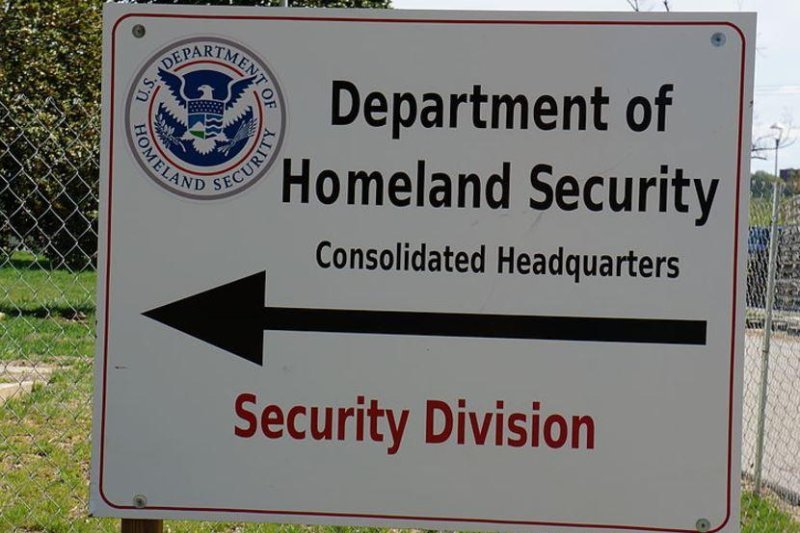The Department of Homeland Security includes a 500-person information technology operation. Richard Staropoli departed as chief information officer after three months on the job. Photo by
Wikimedia Commons/Geraldshields11
Aug. 7 (UPI) -- The Department of Homeland Security's chief information officer has resigned after only three months in the position, the agency confirmed Monday.
President Donald Trump appointed Richard Staropoli, a former U.S. Secret Service agent, to the position on May 1.
Stephen Rice, the deputy chief information officer, will serve as acting CIO until Trump appoints a replacement, a DHS spokesman said. Staropoli's boss, Homeland Security Secretary John Kelly, left the department recently to take over as White House chief of staff.
DHS didn't say why Staropoli departed.
Starpoli previously worked in the private sector as the chief information security officer for Fortress Investment Group, a billion-dollar hedge fund in New York City starting in November 2009. He said he had grand plans to operate the DHS information technology like a trading room.
"The pace at which you operate, not just in New York, but at a hedge fund in New York, is unlike anything else," he said at FedTalks at Night, his first public remarks since taking the role in April. "And that's the pace with which I plan on moving DHS along with respect to IT."
Staropoli physically reorganized his 300-person DHS technology operation.
"We've moved out all these deputies and all these directors from their offices located all over these different buildings that DHS occupies," he explained. "We now occupy one floor, once space in a trading floor concept, so when I need to get something done or a vendor needs to come up and we need to address a problem, I've got every entity I need in one spot. That cuts down on bureaucracy and allows me the maximum benefit of maximizing my time, so we can achieve results."
He had said he planned to cut staff and control IT spending, calling his style "cigar box accounting."
"We will spend money, but we're going to spend it smartly. If a project has been started and it's not working, we're going to move on to something else," Staropoli said. "If a project needs to get started, I'm not going to get caught up in the minutiae of looking for the 100 percent solution. The diversity of DHS is so great ... there is no one-size-fits-all solution for all of these things."
Starpoli was a special agent in the Secret Service for 25 years, including working in the Presidential Protective Division, the Hostage Rescue Unit and the intelligence community.
He received a commendation from President George W. Bush for his actions in the White House during the Sept. 11, 2001, terror attacks.















